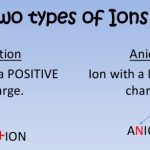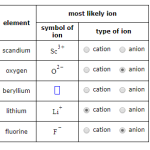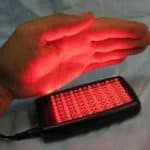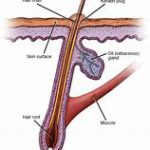Last Updated on 11 months by Francis
Negative ions are a topic of much debate in the scientific community. Some people swear by their benefits, while others remain skeptical. In this article, we will explore the science behind negative ions, their potential health benefits, and the evidence supporting their use.
Negative ions, also called anions, are molecules or atoms that have gained one or more negatively charged electrons. They are known for their potential benefits to human health and wellbeing, including improving mood, reducing stress, and enhancing overall mental clarity. However, there are still debates among scientists and experts about whether negative ions are actually effective in achieving these benefits or if they are simply a myth. In this article, we will explore the concept of negative ions and the evidence surrounding their effectiveness.
Contents
What Are Negative Ions?
Negative ions are atoms or molecules that have gained one or more electrons, giving them a negative charge. They are found in abundance in nature, particularly near waterfalls, mountains, and other natural sources of moving water. Negative ions are also produced by thunderstorms, sunlight, and certain types of plants.
How Do Negative Ions Work?
Negative ions are believed to work by neutralizing positively charged particles in the air, such as dust, pollen, and pollutants. When negative ions come into contact with these particles, they attach to them and make them too heavy to remain airborne, causing them to fall to the ground.
What Are the Health Benefits of Negative Ions?
Proponents of negative ions claim that they can have a variety of health benefits. Studies have suggested that negative ions can:
- Improve mood: Negative ions have been shown to increase serotonin levels in the brain, which can improve mood and reduce symptoms of depression and anxiety.
- Boost energy: Negative ions have been found to increase energy levels, reduce fatigue, and improve mental clarity.
- Enhance immunity: Negative ions may help boost the immune system by stimulating the production of white blood cells.
- Reduce inflammation: Negative ions have been shown to have anti-inflammatory effects, which may help reduce pain and swelling.
The Science Behind Negative Ions
Despite the numerous claims made about negative ions, the scientific evidence supporting their use is mixed. While some studies have suggested that negative ions can have health benefits, others have found no significant effects.
Negative ions are atoms or molecules that have gained one or more electrons, giving them a negative charge. They neutralize positively charged particles in the air, attach to them and make them too heavy to remain airborne, causing them to fall to the ground. Proponents of negative ions claim they can have a variety of health benefits, such as improving mood, boosting energy, enhancing immunity, and reducing inflammation. However, the scientific evidence supporting their use is mixed, with some studies suggesting health benefits and others finding no significant effects. Limitations in the standardization of measurement and administration in these studies have been observed.
Studies on Negative Ions
One study published in the International Journal of Biometeorology found that negative ion therapy improved symptoms of seasonal affective disorder (SAD) in some participants. Another study published in the Journal of Alternative and Complementary Medicine found that negative ion therapy reduced symptoms of depression and anxiety in patients with chronic obstructive pulmonary disease (COPD).
However, other studies have found no significant effects of negative ion therapy. A study published in the Journal of Psychosomatic Research found that negative ion therapy had no significant effects on mood or anxiety in healthy participants. Another study published in the Journal of Environmental Psychology found that negative ion generators had no significant effects on cognitive performance, mood, or subjective well-being.
Limitations of Studies on Negative Ions
One of the main limitations of studies on negative ions is the lack of standardization in the way they are measured and administered. There is also a lack of consensus on the optimal dosage and duration of negative ion therapy.
Improving Mood
Negative ions have been shown to increase serotonin levels in the brain. Serotonin is a neurotransmitter that is responsible for regulating mood, sleep, appetite, and other bodily functions. When serotonin levels are low, it can lead to symptoms of depression, anxiety, and other mood disorders. By increasing serotonin levels, negative ions may help improve mood and reduce symptoms of depression and anxiety.
Increasing Energy Levels
Negative ions have been found to increase energy levels and reduce fatigue. One study published in the Journal of Alternative and Complementary Medicine found that negative ion therapy improved energy levels in patients with chronic obstructive pulmonary disease (COPD).
Enhancing Immunity
Negative ions may help boost the immune system by stimulating the production of white blood cells. White blood cells are responsible for fighting off infections and diseases. By increasing the production of white blood cells, negative ions may help enhance immunity and reduce the risk of infections.
Reducing Inflammation
Negative ions have been shown to have anti-inflammatory effects. Inflammation is a natural response to injury or infection, but chronic inflammation can lead to a variety of health problems, including arthritis, heart disease, and cancer. By reducing inflammation, negative ions may help reduce pain and swelling.
Using Negative Ions
If you are interested in trying negative ion therapy, there are a variety of ways to do so. Some people use negative ion generators, which are devices that emit negative ions into the air. These generators can be used in the home, office, or other indoor spaces. Negative ion bracelets and necklaces are also available, which are worn on the body to provide a constant source of negative ions.
Other ways to increase exposure to negative ions include spending time outdoors in nature, particularly near waterfalls, mountains, and other natural sources of moving water. Spending time in the sun and practicing deep breathing exercises can also help increase exposure to negative ions.
FAQs for the topic: are negative ions a thing
What are negative ions?
Negative ions are atoms or molecules that carry a negative electrical charge. They are formed when an atom or molecule gains one or more electrons, giving it a net negative charge.
Where can negative ions be found?
Negative ions are found in nature, particularly in places where water is present, such as oceans, waterfalls, and rivers. They can also be found in forests, mountains, and other outdoor environments. Negative ions can also be generated by certain devices, such as ionizers and air purifiers.
Negative ions have been linked to a number of health benefits, including improved mood, reduced stress and anxiety, and increased energy levels. They have also been shown to improve respiratory function and reduce symptoms of allergies and asthma.
Can negative ion generators improve indoor air quality?
Negative ion generators are often marketed as devices that can improve indoor air quality by removing pollutants from the air. While there is some evidence to suggest that negative ions can help to remove particulate matter from the air, their effectiveness in removing other types of pollutants, such as gases and chemicals, is less clear.
Are negative ions harmful to humans?
There is no evidence to suggest that negative ions are harmful to humans. In fact, many people find that exposure to negative ions has a positive effect on their mood and overall well-being. However, it is important to note that extremely high levels of negative ions can be harmful, and caution should be taken when using devices that generate large amounts of negative ions.
Can negative ions be used to treat medical conditions?
While negative ions have been shown to have a number of health benefits, they should not be used as a substitute for medical treatment. While they may help to alleviate certain symptoms, they are not a cure for any medical condition. If you are experiencing any medical symptoms, it is important to seek the advice of a qualified healthcare professional.




.jpg)


